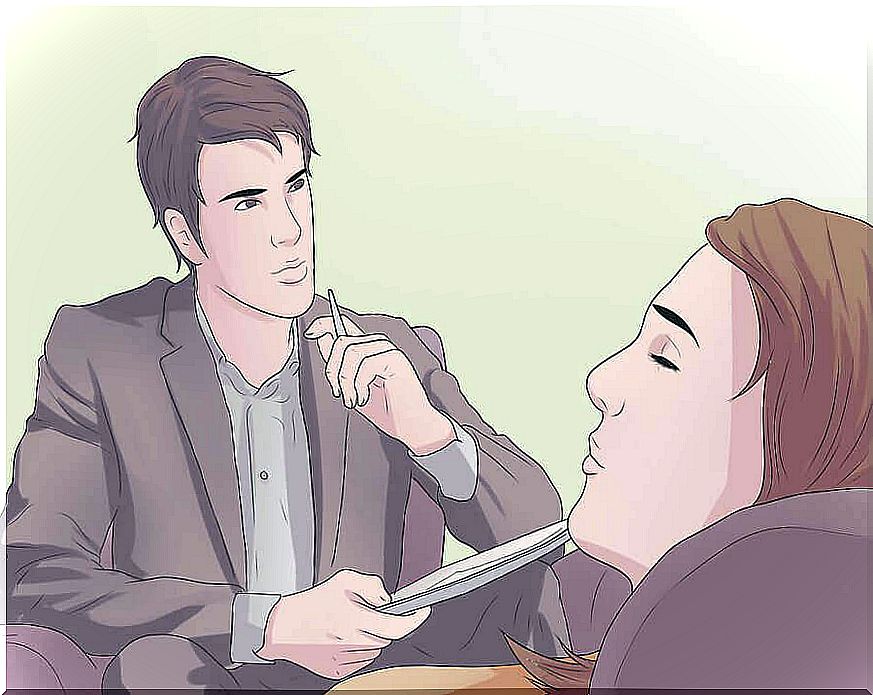Suicidal Thoughts – How To Help People Who Experience Them?

Suicidal thoughts don’t just happen overnight. They are the result of a long process that, unfortunately, often goes unnoticed by loved ones. Depression is not always obvious.
According to the World Health Organization (WHO), suicide is committed every 40 seconds. It is a common cause of death in people aged 15 to 44, and it affects men more than women.
The most important thing is prevention. We must pay attention to the symptoms of depression. In addition, it is important to detect when someone is having suicidal thoughts. Timely intervention is essential.
Signs that something is wrong
Suicide is more common in young and old people . Generally speaking, people with suicidal ideation are often lonely and have few friends. Suicidal thoughts also often appear after losing a loved one.

Regardless, we must be aware of signs that indicate suicidal thoughts. The most common symptoms are:
- Lack of care for appearance;
- Excess sleep;
- Experiencing the stages of severe insomnia;
- Isolation and rejection of the company of others;
- Frequent sadness or irritability;
- Saying phrases like “I want to die” or “my life is pointless”;
- Indifference to everything;
- Frequent use of alcohol or drugs;
- Lack of interest in eating and loss of appetite.
Loneliness provokes thoughts of suicide
If someone becomes suicidal, the most important thing is to avoid leaving the person on his own.

Over time, a person who has thoughts of suicide begins to close the door of his life to everything. I don’t want to talk to anyone and meet anyone. It is getting harder and harder for her to maintain the routine of the day.
It may not be easy, but we should try to talk to them. It is normal for suicides to decline any help. The conversation should be subtle, and not overwhelmed with good advice and signs of worry or anguish.
Instead, the main focus of the conversation should be to prevent further isolation.
Helping someone who has thoughts of suicide
When a person starts to talk about suicidal thoughts and would rather die, they should always be taken seriously. People don’t say these kinds of things for no reason, especially when they keep repeating them.
In such cases, you should always take appropriate preventive measures.

- It is important to openly ask the person how they are doing. First of all, listen carefully to what is said.
- Don’t judge. It is very important. Nothing the person says should be evaluated. Judging can make a person shut down rather than say what they are really feeling.
- Be straightforward. It’s always better to deal with a topic without beating around the bush. Ask if the person has thought of committing suicide and respect their answer.
- Don’t panic. What the other person needs is solid support, not another problem. You must remain calm and reasonable.
- Help the person visualize the consequences of suicide. It’s a good idea to ask the person what they think will happen to their loved ones after they commit suicide and how they will feel.
- Share about the problem or loss. Rather than looking for answers, it is more important that the person expresses what they are feeling.
It is best to help the person look at the problem or what they have lost in a different way.
- Highlight the positive sides. Ask the person about the positive things that are still happening in their life. Find out what kept them from committing suicide until now.
Don’t leave that person alone.
- Encourage the person to ask for help. Such matters should be consulted with a professional. Without applying pressure, you should motivate the person to see a psychologist or psychiatrist.
If a person completely refuses to receive help and shows signs of instability, it’s time to act on your own. You should notify emergency services or contact your immediate family for intervention. You should never remain passive or “wait for the situation to resolve itself”.
After all, someone’s life is at stake.









